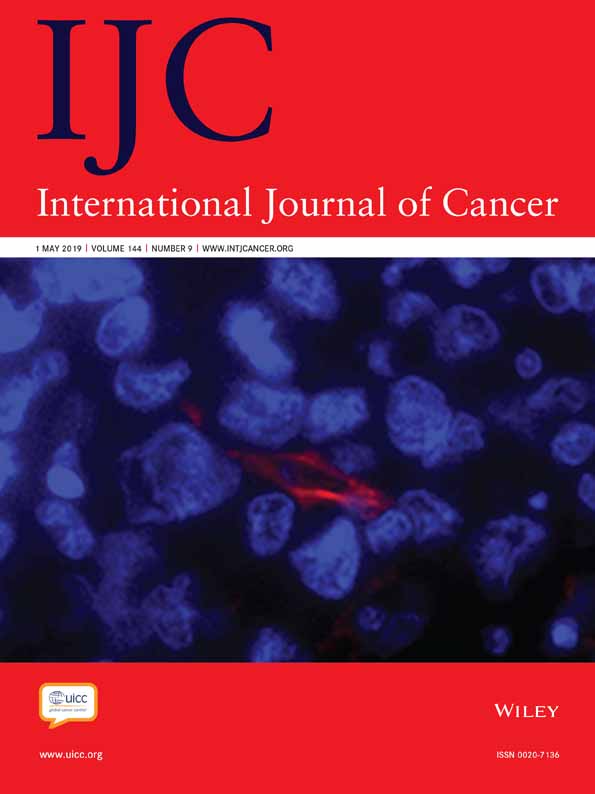Measurement of tumor mutational burden (TMB) in routine molecular diagnostics: in silico and real-life analysis of three larger gene panels
Abstract
Assessment of Tumor Mutational Burden (TMB) for response stratification of cancer patients treated with immune checkpoint inhibitors is emerging as a new biomarker. Commonly defined as the total number of exonic somatic mutations, TMB approximates the amount of neoantigens that potentially are recognized by the immune system. While whole exome sequencing (WES) is an unbiased approach to quantify TMB, implementation in diagnostics is hampered by tissue availability as well as time and cost constrains. Conversely, panel-based targeted sequencing is nowadays widely used in routine molecular diagnostics, but only very limited data are available on its performance for TMB estimation. Here, we evaluated three commercially available larger gene panels with covered genomic regions of 0.39 Megabase pairs (Mbp), 0.53 Mbp and 1.7 Mbp using i) in silico analysis of TCGA (The Cancer Genome Atlas) data and ii) wet-lab sequencing of a total of 92 formalin-fixed and paraffin-embedded (FFPE) cancer samples grouped in three independent cohorts (non-small cell lung cancer, NSCLC; colorectal cancer, CRC; and mixed cancer types) for which matching WES data were available. We observed a strong correlation of the panel data with WES mutation counts especially for the gene panel >1Mbp. Sensitivity and specificity related to TMB cutpoints for checkpoint inhibitor response in NSCLC determined by wet-lab experiments well reflected the in silico data. Additionally, we highlight potential pitfalls in bioinformatics pipelines and provide recommendations for variant filtering. In summary, our study is a valuable data source for researchers working in the field of immuno-oncology as well as for diagnostic laboratories planning TMB testing.
Abstract
What's new?
Tumor mutational burden (TMB) is an emerging biomarker to predict response to immune checkpoint inhibitors. While TMB can be measured by whole exome sequencing (WES), costs, turn-around time, and tissue availability currently favor a panel sequencing approach using FFPE tissue for routine diagnostics. However, performance remains to be clarified. Our study is the first worldwide that analyses three major commercial gene panels by comparing TMB approximation across panels as well as against the technical reference standard WES. The data suggest that TMB approximation using gene panel sequencing of FFPE tumor tissue is feasible and can be implemented in routine diagnostics.




